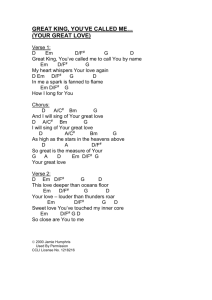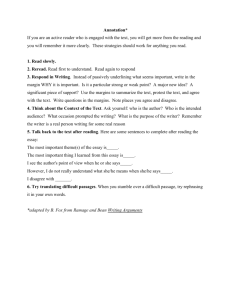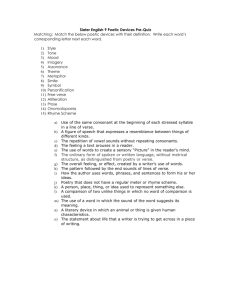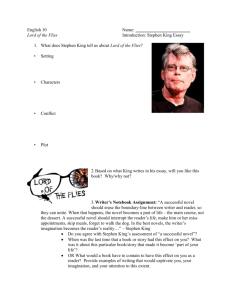Critical essays on literary texts – common mistakes
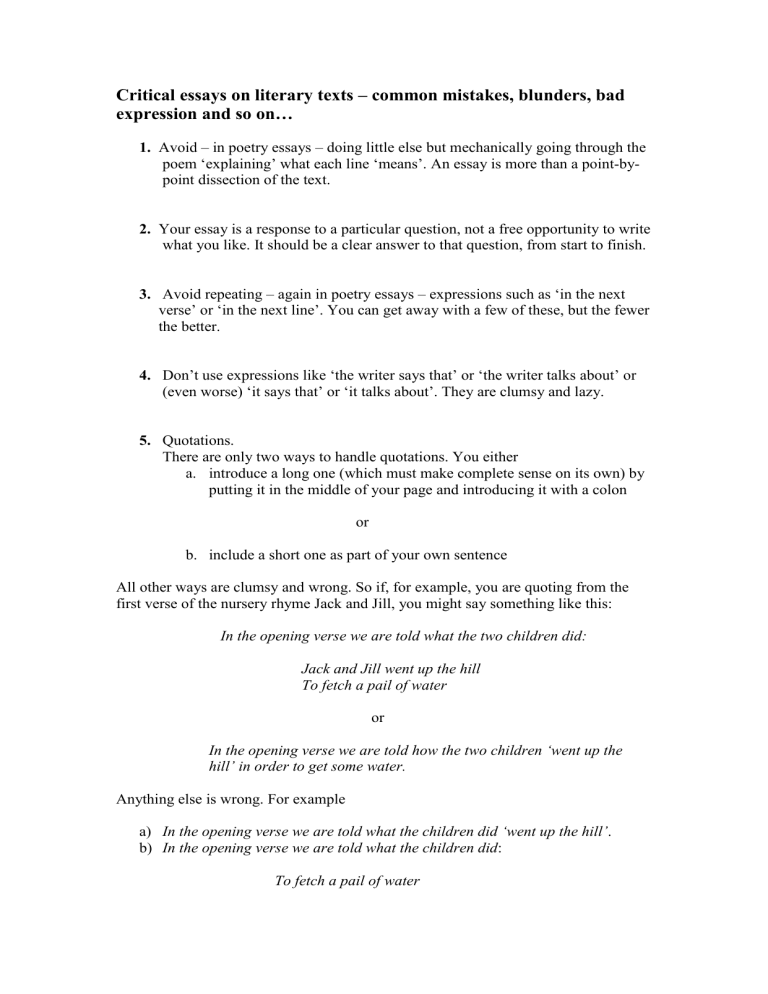
Critical essays on literary texts – common mistakes, blunders, bad expression and so on…
1.
Avoid – in poetry essays – doing little else but mechanically going through the
poem ‘explaining’ what each line ‘means’. An essay is more than a point-by-
point dissection of the text.
2.
Your essay is a response to a particular question, not a free opportunity to write
what you like. It should be a clear answer to that question, from start to finish.
3.
Avoid repeating – again in poetry essays – expressions such as ‘in the next
verse’ or ‘in the next line’. You can get away with a few of these, but the fewer
the better.
4.
Don’t use expressions like ‘the writer says that’ or ‘the writer talks about’ or
(even worse) ‘it says that’ or ‘it talks about’. They are clumsy and lazy.
5.
Quotations.
There are only two ways to handle quotations. You either a.
introduce a long one (which must make complete sense on its own) by putting it in the middle of your page and introducing it with a colon
or b.
include a short one as part of your own sentence
All other ways are clumsy and wrong. So if, for example, you are quoting from the first verse of the nursery rhyme Jack and Jill, you might say something like this:
In the opening verse we are told what the two children did:
Jack and Jill went up the hill
To fetch a pail of water
or
In the opening verse we are told how the two children ‘went up the hill’ in order to get some water.
Anything else is wrong. For example a) In the opening verse we are told what the children did ‘went up the hill’ . b) In the opening verse we are told what the children did :
To fetch a pail of water
6.
Don’t say ‘the writer quotes’ . Writers don’t quote their own words, they write them. It’s you who quotes. The word ‘quote’ or ‘quotation’ should never appear in your essay.
7.
Avoid using ‘you’ or ‘I’ or ‘the reader’ as in, for example, the following:
At the end of the novel you feel the death of the father has affected every single character.
At the end of the novel I feel the death of the father has affected every single character.
At the end of the novel the reader feels the death of the father has affected every single character.
The first is too conversational, the second is too personal, and the third is too formal.
Use ‘we’instead:
At the end of the novel we feel the death of the father has affected every single character.
Or leave it out:
At the end of the novel the death of the father has affected every single character .
8.
Don’t be gushy. Saying things like ‘This verse is absolutely brilliant’
or
‘Shakespeare is an amazing writer’
just sounds insincere (even if you do really mean it). Words like ‘effective’, ‘successful’, ‘skilful’ and so on are better.
9.
Generally, it’s better to avoid saying things like
‘I think that… ’ or ‘
I personally
think that…’ or (worse still)
‘I myself personally think that…’
Just state your opinion and leave it at that.
10.
Refer to the writer as ‘the writer’ or (if it’s a poetry essay) ‘the poet’ or by his or
her second name.



